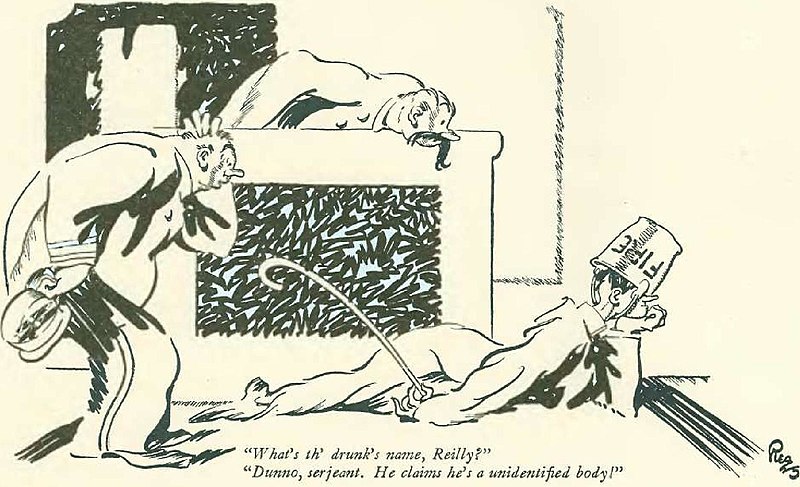A Boon to Babbits
THE after dinner speech is one of the few surviving economic wastes that have eluded the efficiency man. It is a big problem. Every night we squander hours and hours of the high-powered business man’s time, and give him nothing for it. Yet there must be after dinner speeches, for if there were not how could we excuse public dinners? And if there were no public dinners how could we meet the buyer for the M. Klein store and expose the jovial nature that possesses our soul after business hour?
I have devised a solution. It is to issue a neat little code book, with key words for the speakers and the corresponding speech printed in full, for the benefit of the rising generation and of those old hands who may want to refresh their memories from time to time. The speaker would shout out the code word instead of the speech.
It should work this way:
As the diners were gulping the last of the spumoni, to keep the waiters from snatching it, there would be a tap of the gavel and President Morris Lefkowitz of Lefkowitz & Connelly would bob up and say, “Service, etc.” and sit down. And everyone would know that this signified “My friends, I cannot help feeling that business to-day is something more than the mere pursuit of the dollar, the quest of profits, the beating of the other fellow. I prefer to express the function of business, not in that word ‘dollars,’ not in that word ‘profits,’ but in another and finer word———” and so on.
Other speakers would follow, something like this:
The Rev. James Stone would rise, beam round the table for a moment and say, “Not prepared to speak. True religion—make more money.” Then Ex-Circuit Judge Oliver McCracken would be called upon and with a twinkle in his eye and a pair of spectacles in one hand, would observe “Hip-pocket joke, Bankruptcy laws.” He would be followed by Lazarus Gutman of the Publicity Bureau, who would say briskly, “Business in cycles, Prosperity stuff. Message to Garcia.” James F. Portley, Congressman, and guest of the Secretary, Julius Rosenbaum, would then rise. He would say, “Not prepared to speak. True patriotism—make more money.”
After tumultuous applause and the playing of the “Star-Spangled Banner” the big event would arrive. The Treasurer would pass a little package to the Secretary who, after silence was restored, would shout, “Man worth while—Man with smile. Unswerving devotion. Gold watch.”
President Lefkowitz would take the watch and remark with unsteady voice, “Surprised, etc.,” and all would sing, “For He’s a Jolly Good Fellow.”
With a good football coach as toastmaster this drill should not take more than eight minutes, after which, without loss of time, we could start calling Klein’s buyer “Max” and noting with joyful tears that for the first time he addresses us as “Ben.”
—Ernest F. Hubbard
The Distance Fiend
HE was a distance fiend,
A loather of anything near.
Though Woof had a singer of opera fame,
And Wow a soprano of national name,
He'd pass them both up for a Kansas quartet
A thousand miles off and hence “harder to get.”
New York was too easy to hear.
He was a distance fiend,
He was a distance fiend,
His radio ruling his life.
When he and his family went to the play,
He'd take them to Yonkers instead of Broadway.
The show being over, he’d blow to a bite
In far Staten Island, that very same night,
God pitied his daughter and wife,
He was a distance fiend.
He was a distance fiend.
Alas, but he died one day.
Saint Peter obligingly asked would he tell
His choice of a residence—Heaven or Hell?
He replied, with a show of consistency fine:
“Good sir, you have hit on a hobby of mine.
Which place is the farthest away?”
He was a distance fiend.
—A. H. Folwell

“What's th’ drunk's name, Reilly?”
“Dunno, serjeant. He claims he’s a unidentified body!”
